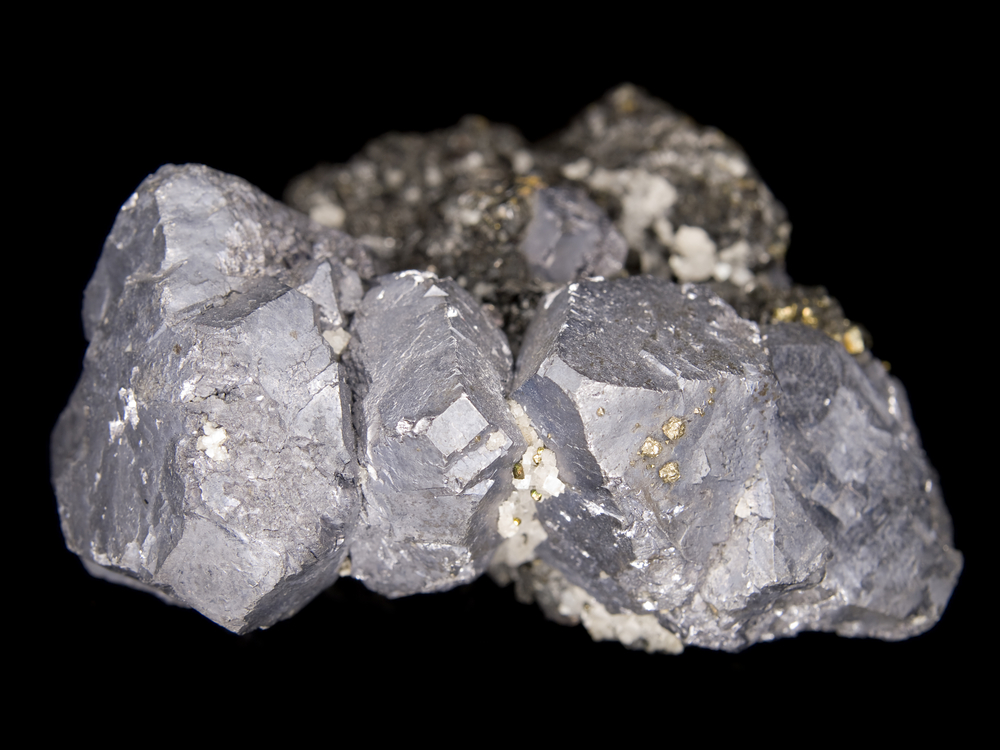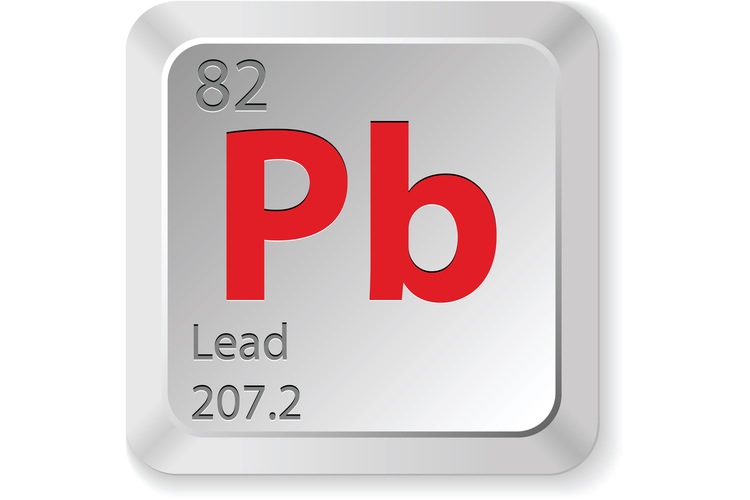Facts About Lead

Get the world’s most fascinating discoveries delivered straight to your inbox.
You are now subscribed
Your newsletter sign-up was successful
Want to add more newsletters?
Join the club
Get full access to premium articles, exclusive features and a growing list of member rewards.
Lead is an incredibly useful metal, but it is also toxic to humans. In fact, if we didn't have to worry about breathing in its dust or ingesting its particles, lead would be in widespread use due to its highly industry-friendly properties, such as excellent malleability and corrosion resistance.
Throughout history — before the scientific advancements of the 20th century revealed its potent toxicity — lead was widely used in a variety of products, including cosmetics, paint, solder, pipes and gasoline. Certain properties of lead, namely its ductility and resistance to corrosion and tiny leaks, make it a particularly good material for constructing water pipes. Even the ancient Romans made their water pipes out of lead, causing some to believe that lead poisoning, at least partially, led to the fall of the Roman Empire.
Natural element
Lead is a highly lustrous, bluish-white element that makes up only about 0.0013 percent of the Earth's crust, according to the Jefferson Lab. It is not considered rare, however, since it is fairly widespread and easy to extract. Lead typically occurs in very small amounts in ores such as galena, anglesite and cerussite. Lead is commonly mined and smelted in Missouri, Idaho, Utah, Colorado, Montana and Texas, according to Plumbing Manufacturers International. About one-third of the lead in the United States is recycled.
The chemical symbol for lead is Pb, which comes from the Latin word plumbum, meaning "waterworks," referring back to ancient times when the metal was widely used in the construction of water pipes. Although there are 27 lead isotopes, only four are considered stable.
Lead linings
Although lead has been phased out of many of its previous uses, this non-corrosive metal is actually quite useful in products that hold or touch highly acidic substances. For example, lead is used to line tanks that hold corrosive liquids, such as sulfuric acid. It is also used in lead-acid storage batteries, such as those found in automobiles.
Because of its density and ability to absorb vibration, lead also makes an excellent shield against different types of harmful radiation, such as those found in X-ray machines and nuclear reactors, according to Jefferson Lab. Lead is also still used in some bullets and ammunition.
Leaded gasoline
Tetraethyl lead was added to gasoline in the 1920s to help reduce engine knocking, wear and tear and pre-ignition. Almost immediately, industry workers started to become extremely ill and some even died. At Dupont's manufacturing plant in New Jersey, it was particularly bad — eight workers died between 1923 and 1925. Finally, after 44 workers at Standard Oil's plant had been hospitalized, public awareness and outcry finally began to gather steam, according to Chemistry LibreTexts. Although the U.S. Public Health Service held a conference in 1925, lead was ultimately allowed to remain in gasoline for decades in spite of all the damage it was causing. It wasn't until the late 1970s that leaded gasoline started to get phased out. It was finally banned for all on-road vehicles in 1996.
Get the world’s most fascinating discoveries delivered straight to your inbox.
Just the facts
- Atomic number (number of protons in the nucleus): 82
- Atomic symbol (on the periodic table of the elements): Pb
- Atomic weight (average mass of the atom): 207.2
- Density: 11.342 grams per cubic centimeter
- Phase at room temperature: Solid
- Melting point: 621.4 degrees Fahrenheit (327.46 degrees Celsius)
- Boiling point: 3,180.2 degrees Fahrenheit (1,749 degrees Celsius)
- Number of isotopes (atoms of the same element with a different number of neutrons): 27; 4 stable
- Most common isotopes: Pb-208 (52.4 percent of natural abundance); Pb-206 (24.1 percent of natural abundance); Pb-207 (22.1 percent of natural abundance); Pb-204 (1.4 percent of natural abundance)
Toxicity today
Since lead was used in so many products before people recognized the extent of its toxicity, it continues to pose a real public health danger today. For example, children living in older homes can still breathe in or ingest dust or paint chips from peeling lead paint on the walls. Lead can also leach into the drinking water supply through older, corroded lead pipes, faucets and solder. Nearly all homes built before the 1980s have lead solder connecting to copper pipes, according to Plumbing Manufacturers International. Even some major U.S. cities still use lead pipes to carry water from the utilities to our homes and businesses. When the water chemistry is very carefully controlled, however, it keeps lead from leaching into the drinking water.
Most cases of lead poisoning are due to chronic low-dose exposure. Since symptoms of slow lead poisoning are mainly emotional and mental in nature, lead poisoning may be the last thing people suspect. Children are at the greatest risk. Lead can delay physical and mental development in babies and young children. In adults, slow accumulation of lead can result in kidney and nervous system damage, anemia, stroke or cancer, according to Utah State University.
Quan Lu is an associate professor of environmental genetics and pathophysiology at Harvard T.H. Chan School of Public Health. He is the senior author of a recent study investigating the harmful effects of lead on neural stem cells and children's neurodevelopment.
"While acute poisoning of lead (Pb) can cause abdominal pain, weight loss, vomiting and even death, the majority cases of Pb exposure in children are chronic and low-dose," said Lu. "Pb exposure in children has been consistently linked to impaired neurological development and cognitive dysfunction as well as persistent antisocial and delinquent behavior."
"Pb disturbs neuronal function. Pb neurotoxicity is determined by intricate interplays between the metal and target neural cells, and there is overwhelming evidence documenting the detrimental effects of Pb in neurons," he told Live Science.
Lu added that previous studies had shown that lead potently inhibits the N-methyl-D-aspartate receptor (NMDA) receptor, which plays an essential role in brain development, synaptic plasticity and learning & memory.
"We need to reduce the chances of Pb exposure," he said. "That means we need to eliminate the sources of Pb contamination: in water, in gasoline, in paints and in any consumer products. Recent incidences of Pb contamination in drinking water in several U.S. cities highlight the urgent need to reduce Pb contamination to protect children."
Who knew?
- Pencils do not — and never did — contain lead. The "lead" in pencils is actually graphite. When large deposits of graphite were first discovered in England in the 1500s, people assumed they had discovered lead, hence the name.
- In ancient alchemy, lead was considered the prima matera, or primal matter. Alchemists associated lead with Saturn, the Roman god of agriculture and harvest. Accordingly, lead was represented with Saturn's symbol, the scythe, ♄.
- In Ancient Rome, lead was added to wine by unscrupulous individuals in order to increase the perception of the wine's sweetness. Although this practice was strictly forbidden in 1498 by the Roman Catholic Church, it continued on for quite some time, resulting in large-scale poisonings well into the late 18th century.
- In 16th and 17th century Europe, lead was used in cosmetics as a way to obtain the fresh "white-faced" look that was so popular at the time, particularly among the aristocracy. One famous user of lead makeup was Queen Elizabeth I of England — her white lead paint was said to give her the coveted "Mask of Youth." Unfortunately, long-term contact with lead often resulted in rotten teeth, and ironically, tooth replacements were often made of lead as well, causing even worse damage to the already lead-poisoned person.
Flint, Michigan: Drinking water crisis
One of the most notorious cases of lead leaching into drinking water occurred recently in Flint, Michigan. In an effort to save money, officials had decided to switch the source of the city's drinking water from the Detroit Water and Sewerage Department (DWSD) to the Karegnondi Water Authority (KWA). In the meantime, however, they would need to pull water from the Flint River, beginning on April 25, 2014.
Within weeks, Flint residents began to complain about the smell and color of their tap water. Tests revealed high levels of E.coli and total coliform bacteria in the water supply, which prompted the city to chlorinate the water at higher-than-usual levels. This chlorination, in addition to the fact that they had not implemented any corrosion protection, caused massive pipe corrosion, allowing lead to leach into the drinking water.
In many homes, the levels of lead in the drinking water were far above the Environmental Protection Agency's maximum safety level of 15 parts per billion (ppb). In fact, the water in one home was tested by Virginia Tech researchers as having lead levels at 13,200 ppb — over three times the level considered to be hazardous waste. Unfortunately, a child living in that home was diagnosed with lead poisoning.
Additional resources

 Live Science Plus
Live Science Plus











